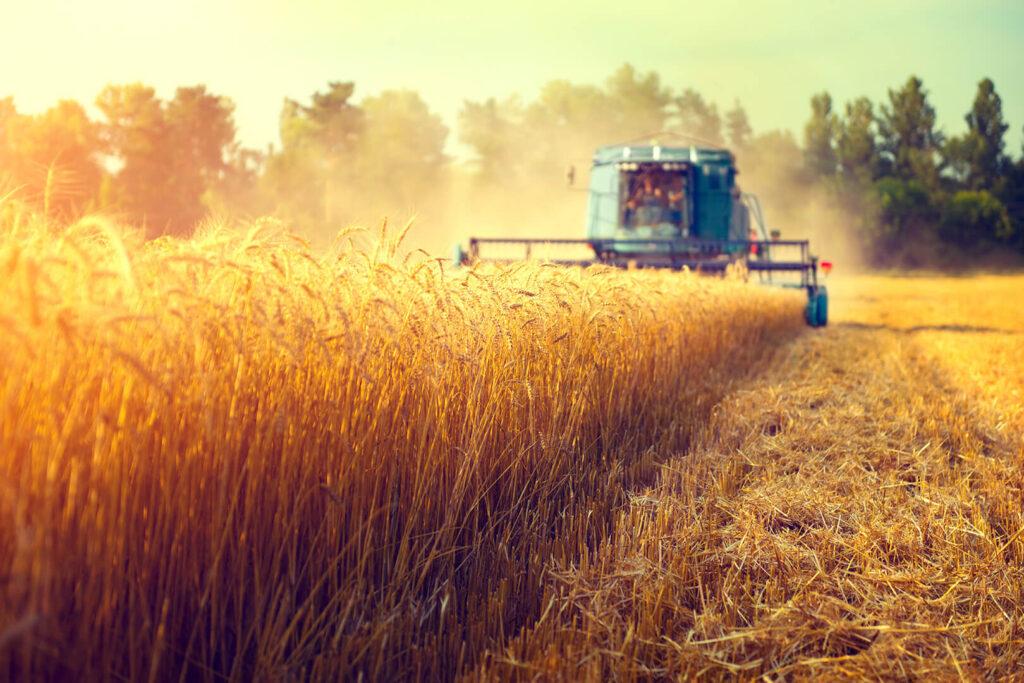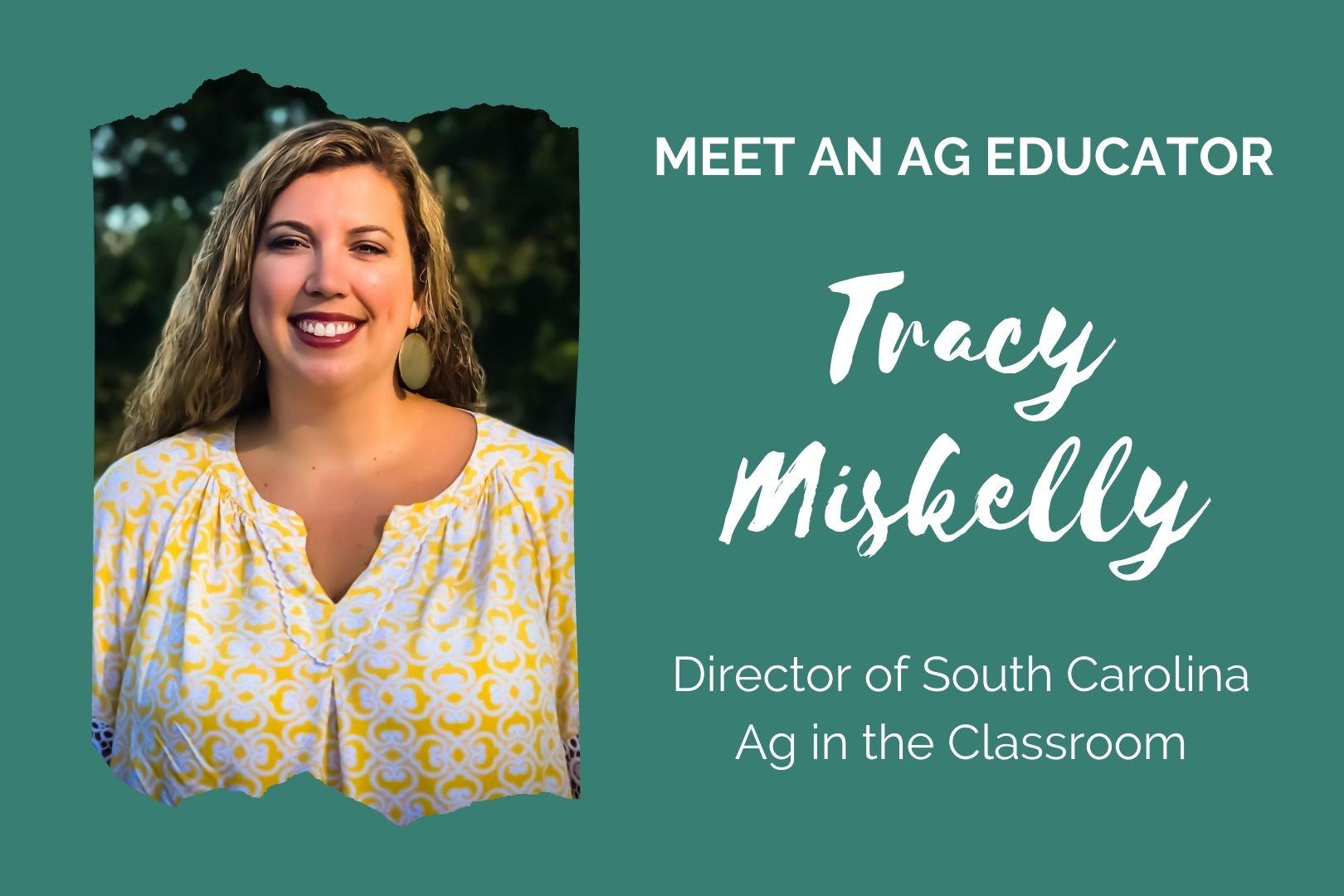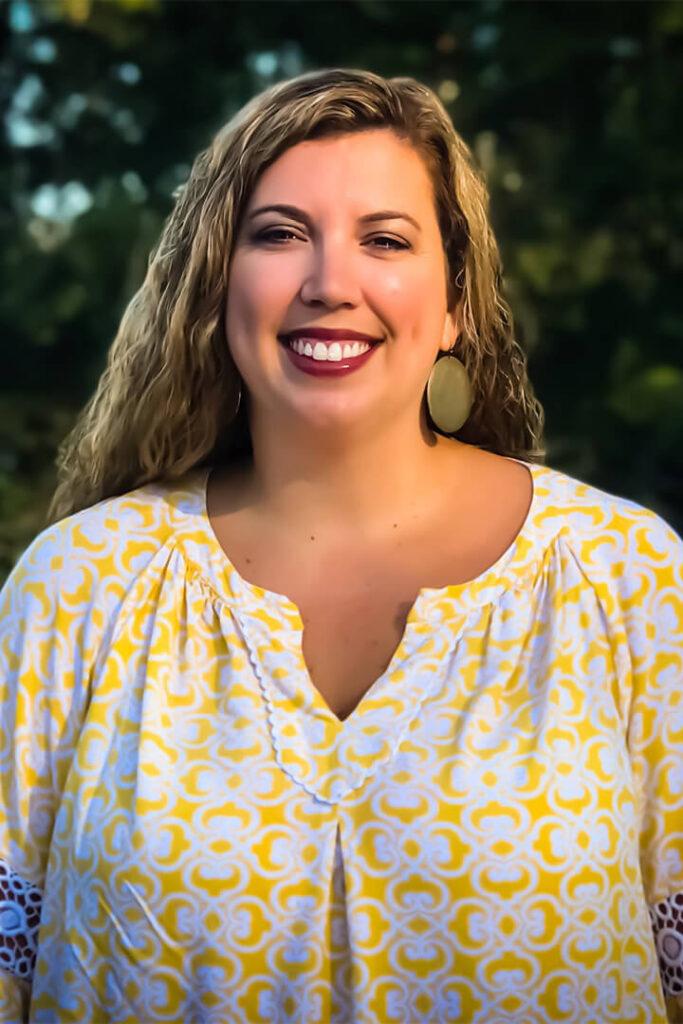
You knew we’d mention Ag in the Classroom (AITC) at some point in this series of interviews with ag educators. An organization dedicated solely to ag education deserves some time in the spotlight. Especially considering its scale: there are AITC chapters in all fifty states.
Although we’ve done projects for a couple AITC chapters, we’ve worked most with South Carolina Ag in the Classroom. So our contact there, Tracy Miskelly, was a natural choice to interview. She also happens to be the director of South Carolina AITC — the best person to explain its work.
Tracy talked to us about where her passion for ag education comes from. She also shared the most effective classroom strategies South Carolina AITC has found. Plus, we touched on some of the ways they adapted their programs to Covid restrictions. (We’ve lightly edited this transcript for length.)
Exhibit Farm: Can you introduce yourself and tell us what your work looks like?
Tracy Miskelly: Our mission is to increase agricultural literacy, so I do that by creating lesson plans and supplemental materials that teachers can use. We provide professional development for teachers that helps them earn renewal credit towards their state licensure. That also provides them with farm tours and classroom sessions where they learn more about agriculture. And then, I also create handout materials for our volunteers that they can utilize at career fairs or [other events] where they’re interacting with children.
EF: Your website says you offer K12 AITC, but I’ve mostly seen AITC geared towards elementary grades. Is it unusual to have high-school programs?
TM: I mean, it’s a K12 organization nationwide. We in South Carolina do offer resources for K12, but most of them are K8-focused just because in South Carolina we have a pretty strong [cohort of] ag ed teachers at the high school level. Our goal is to introduce kids to agriculture and then maybe they’ll decide to take ag in high school. But we’re open for all teachers to help them learn about ag if they want to integrate it into their classroom.
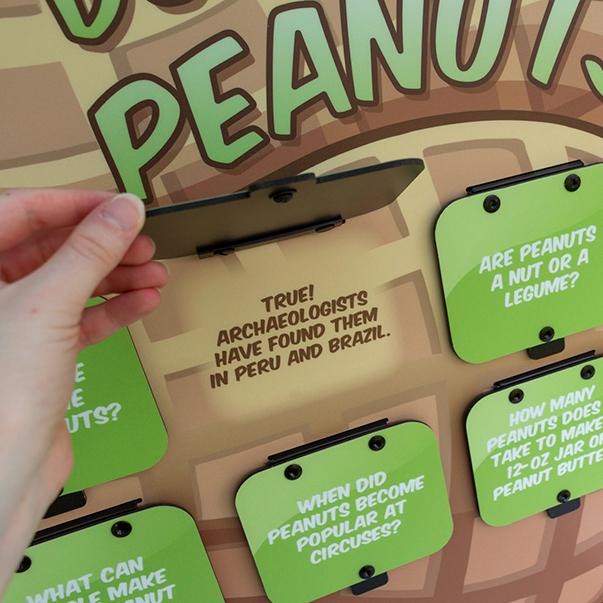
EF: Which of your tools/strategies/lesson types do you find work best in the classroom? Ag-accurate books? Resources for science experiments?
TM: Probably anything hands-on. All of our materials include some sort of activity that gets kids moving or interacting with a science experiment. And I feel like that’s probably what helps engagement level.
I always talk about agriculture being a great topic for teachers because it’s relevant — we all eat. No matter what your background is, what your socioeconomic level is, we all eat and so that topic helps students be engaged and interested. And then we bring in a hands-on activity where they can do something; I think that’s what helps it be so successful.
EF: What topics do your programs focus on? What themes do you try to get across?
TM: Well, we’re always trying to introduce them to the fact that agriculture is essential; I think everyone saw that during the pandemic. And [that] it’s not just this “American Gothic” image of a man and his wife with overalls and a pitchfork, but agriculture is much more technology-driven. That’s a big theme [in] our professional development. And that farmers really are stewards of the land. Their goals are to pass down farms to the next generation, so they take pride in practices that help them be sustainable.
And then [we also talk about] farmers doing more with less than they’ve ever done before, yields increasing with acreage planted decreasing. [We help] them see the tools that farmers use, whether that be GPS technology in tractors, drones, GMOs. We try to help them understand the truth and science of agriculture.
EF: You mentioned the pandemic — I know one reason you guys wanted us to make an outdoor tent exhibit for you was for Covid purposes. Can you talk about how Covid impacted your programs and what new strategies you’ve found helpful?
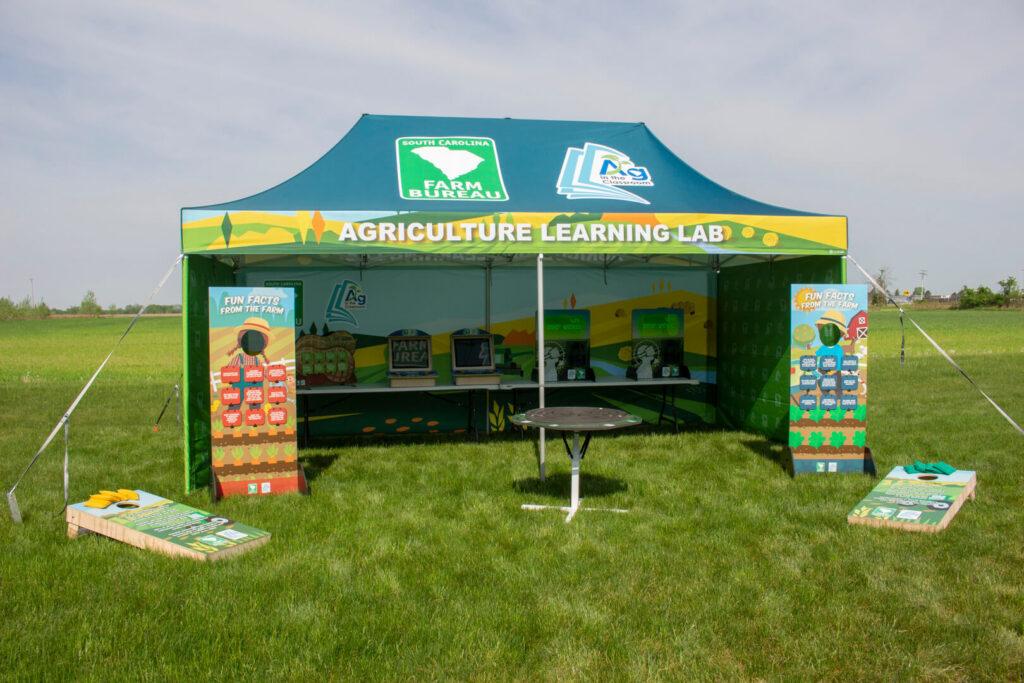
TM: Well, when the pandemic was at its height, most people wanted to be outside. It’s a place where you could social distance, [so] a lot of farms with agritourism really flourished. People were out like crazy. And so I think with our program, anything from school gardening to however teachers are integrating agriculture, it’s a way to get outside and social distance. Kids are still able to learn and interact with the environment safely.
EF: Lastly, how did you get started in ag education? Why are you personally invested in ag literacy?
TM: So I’m a former classroom teacher. I’ve taught kindergarten, first, second, and third grade, and I also was a literacy coach. I did not grow up on a farm, so I understood agriculture was important, but I didn’t really understand a lot about it until I married into it. My husband’s family has a small beef cattle operation, and he was a high-school ag teacher, so that opened my eyes to a lot of folks’ misconceptions about the industry.
My husband and I got involved with Farm Bureau as volunteer leaders. We served on our state Young Farmer & Rancher committee, and then this job became available as Director of Ag in the Classroom.
And I’m really passionate about ag literacy because farmers are just salt of the earth people trying to provide for the masses, you know. They’re only about 1% of the population providing for everyone else.
I just like standing up for what I feel like is right. These farmers are providing so that we don’t have to grow our own food or fiber. So I want to make sure they’re able to do what they need to do efficiently and effectively so that the rest of the world continues to eat and be clothed.
